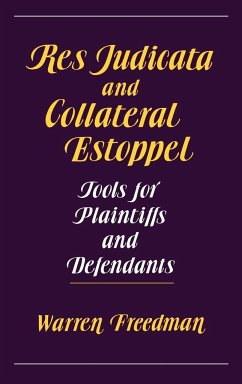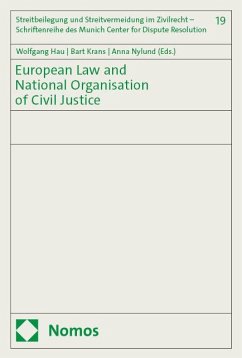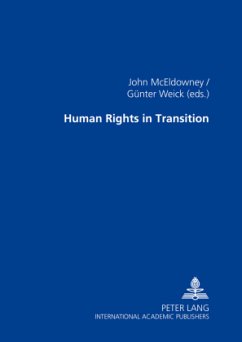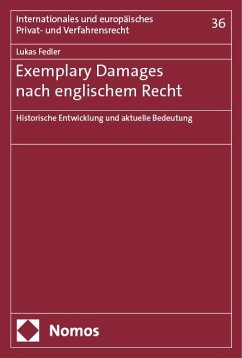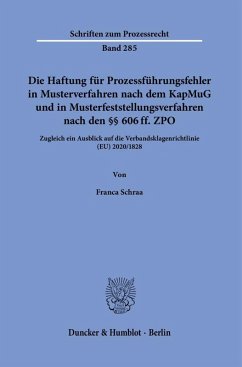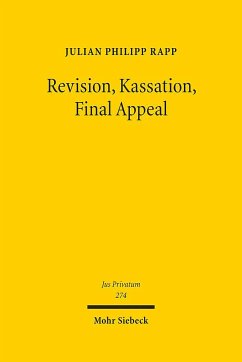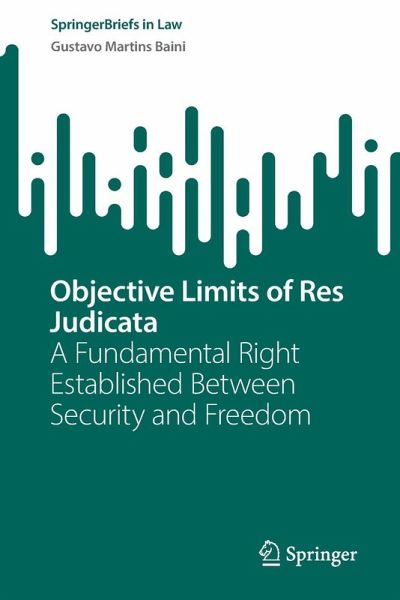
Objective Limits of Res Judicata
A Fundamental Right Established Between Security and Freedom
Versandkostenfrei!
Erscheint vorauss. 29. November 2025
38,99 €
inkl. MwSt.

PAYBACK Punkte
19 °P sammeln!
This book critically addresses one of the most complex issues in procedural law: the objective limits of res judicata. Particularly relevant in civil law countries such as Italy and Germany-and especially in Portugal-this topic has generated intense doctrinal debate. In an effort to circumvent the constraints imposed by the traditional model of the plea of res judicata and the triple identity test, Portuguese legal scholarship developed the concept of the authority of res judicata. However, the vague contours of this concept have led to doctrinal uncertainty and inconsistency.Does res judicata...
This book critically addresses one of the most complex issues in procedural law: the objective limits of res judicata. Particularly relevant in civil law countries such as Italy and Germany-and especially in Portugal-this topic has generated intense doctrinal debate. In an effort to circumvent the constraints imposed by the traditional model of the plea of res judicata and the triple identity test, Portuguese legal scholarship developed the concept of the authority of res judicata. However, the vague contours of this concept have led to doctrinal uncertainty and inconsistency.
Does res judicata extend only to the operative part of the judgment, or does it also encompass its reasoning? Is only the claim precluded, or also the cause of action? Which issues that arise during litigation are barred from future disputes? The more freedom allowed to relitigate such issues, the less legal certainty the decision provides. Conversely, the more stabilizing the decision, the narrower the scope for future litigation.
This work proposes an alternative to the perplexing approaches that have challenged jurists within the Romano-Germanic tradition-particularly in Portugal: res judicata should also extend to prejudicial questions, provided they were effectively litigated by the parties, with full procedural guarantees, and expressly decided. This proposal reflects an adaptation of the Anglo-American model of collateral estoppel, already partially adopted by Brazilian legislation, with a powerful pacifying effect.
The monograph is divided into three parts. The first examines the Anglo-American model of stabilizing judicial decisions, from the pre-Roman influence on res judicata to the Restatement (Second) of Judgments, including the requirements of nonmutual collateral estoppel, partially incorporated into Bra
Does res judicata extend only to the operative part of the judgment, or does it also encompass its reasoning? Is only the claim precluded, or also the cause of action? Which issues that arise during litigation are barred from future disputes? The more freedom allowed to relitigate such issues, the less legal certainty the decision provides. Conversely, the more stabilizing the decision, the narrower the scope for future litigation.
This work proposes an alternative to the perplexing approaches that have challenged jurists within the Romano-Germanic tradition-particularly in Portugal: res judicata should also extend to prejudicial questions, provided they were effectively litigated by the parties, with full procedural guarantees, and expressly decided. This proposal reflects an adaptation of the Anglo-American model of collateral estoppel, already partially adopted by Brazilian legislation, with a powerful pacifying effect.
The monograph is divided into three parts. The first examines the Anglo-American model of stabilizing judicial decisions, from the pre-Roman influence on res judicata to the Restatement (Second) of Judgments, including the requirements of nonmutual collateral estoppel, partially incorporated into Bra



